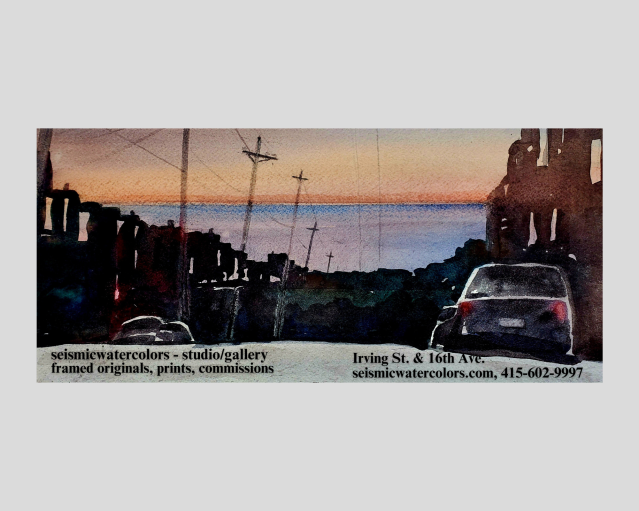Abolish Jaywalking Tickets
I’ve done it. You probably have, too. You’re walking on Clement or Irving streets, and a store on the other side of the street catches your eye. Giving in to temptation, you look both ways and cross in the middle of the block once it’s safe to do so. Most of us don’t realize we’re breaking the law, but that’s jaywalking – something you can get a ticket for.
Jaywalking is enforced arbitrarily throughout California. Tickets are issued disproportionately to people of color, and sometimes these encounters with law enforcement can be life-threatening.
It’s time for change. That’s why I introduced Assembly Bill (AB) 1238, the Freedom to Walk Act, to prevent unnecessary encounters with police. AB-1238 would eliminate jaywalking infractions in California, whether that’s entering the street when the traffic light is red or crossing outside a crosswalk. This would end an undue burden placed on low-wage workers, as tickets range from $250 to more than $1,000. They also often find it impossible to take time off to go to court and fight the ticket.
My bill would also end the use of jaywalking as a pretext to stop someone. There are examples in California when law enforcement officers have used it with deadly consequences. In 2018, Chinedu Okobi was stopped for crossing El Camino Real mid-block in Millbrae. When he declined to cooperate with authorities, they used a Taser, leading to Okobi suffering cardiac arrest which led to his death. More recently, Kurt Reinhold died last September while stopped for jaywalking in Orange County. Both accused jaywalkers were African American.
Under the California Racial and Identity Profiling Act (RIPA), the state compiled data from 2018 to 2020 showing that Black Californians are up to four-and-a-half times more likely to be stopped by police for jaywalking than white Californians. Whether it’s someone’s life or hundreds of dollars in fines, the price of our jaywalking laws is too high. We need to reconsider how we use our law enforcement resources and reevaluate whether our state’s jaywalking laws are actually protecting pedestrians.
The history of jaywalking laws began in the 1930s. As the number of deadly car accidents skyrocketed the previous decade, the emerging auto industry wanted to shift the blame from drivers to pedestrians. Over the years, street designs primarily considered the needs of drivers above all else. Adding to the problem is the lack of pedestrian infrastructure in under-resourced communities.
We have examples that show how decriminalizing jaywalking works. The United Kingdom allows pedestrians to cross the street mid-block and has half as many pedestrian deaths as the United States. Other states have also begun taking action. Virginia recently decriminalized jaywalking, and New York’s attorney general recommended last summer that her state do the same.
California has already amended its jaywalking laws as recently as 2018. That year, we passed legislation eliminating the practice of ticketing people for crossing after the signal’s countdown began. Let’s stop ticketing this infraction completely to ensure fairness across our state.
Phil Ting (D-San Francisco) represents the 19th Assembly District, which includes the west side of San Francisco along with the communities of Broadmoor, Colma and Daly City. He lives in the Sunset District. He can be reached at (415) 557-2312 or at assemblymember.ting@assembly.ca.gov. For more information and updates, visit https://a19.asmdc.org.
Categories: Assembly











